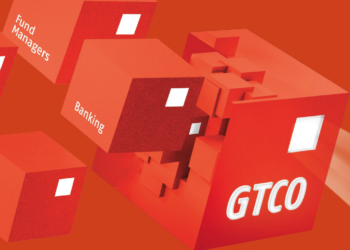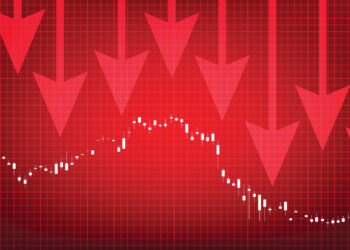In a recent interview, the Divisional Head of Trading Business at The Nigerian Stock Exchange (NSE), Mr. Jude Chiemeka, spoke about some strategic plans that have been put in place to enhance global competitiveness. He also touched on a number of other issues. See excerpts below:
QUESTION: What are the key strategic initiatives you’re working on at the moment?
In redefining its strategic ambitions, the NSE selected three key focus areas to pursue to enhance our global competitiveness and appeal to stakeholders. They are based on enhancing customer satisfaction; boosting our retail segment penetration and; Enhancing our organizational agility.
As part of our tailored strategies for different customer segments, we have significantly increased our focus on growing retail participation as a key component in building a resilient market. At the crux of this, is the establishment of a Retail Investor Coverage Office, to help us more effectively support the Nigerian populace to create durable wealth. The office drives our efforts towards (i) simple, affordable and attractive investment products and services for retail investors; and (ii) innovative financial literacy and investor outreach programs that foster radical change.
The Exchange is working hard with other key stakeholders to roll out Exchange Traded Derivatives (ETDs), further expand the Exchange Traded Funds (ETFs) space which is needed to meet our objective of facilitating order flow across various asset classes and offer our ever-increasing community of domestic and global investors a greater array of products to diversify and manage risk.
The Exchange is also working hard to promote initiatives like margin lending and securities lending which are tested mechanisms for increasing market liquidity and improving market efficiency. Through our Government Relations and state-owned Enterprises Departments, we continue to engage the government on the privatization and listing of state-owned enterprises.
We also maintain our role as an advocate for the adoption and implementation of market-friendly policies required for sustainable economic growth.
Question: How would the NSE assess the market so far in 2019?
Market sentiments this year have been shaped largely by the electioneering season. Average daily turnover stands at about N3.3 billion compared to N7.2 billion within the same period in 2018. Due to the election uncertainties, many foreign portfolio investors chose to remain on the sidelines. Retail participation has also been weak due to other macro-economic factors.
We are delighted to have finally completed the highly anticipated listing of MTN Nigeria, and Airtel Africa on the Exchange in addition to the earlier listing of SAHCOL. These listings are a promising development in the capital market and we encourage other issuers to explore the different opportunities in the capital markets for raising long term capital. As a listing platform of choice, these listings have added to our bouquet of diverse investment offerings to the public.
In the Fixed Income market, we have also seen activity in the primary market, mostly driven by issuances by the Federal Government of Nigeria. Corporates have also raised and listed N23.5Bn ($63.74Mn) worth of green bonds on the Exchange, as green financing continues to garner more attention in Nigeria.
[READ: Ecobank raises $450 million through bond offering]
QUESTION: With elections now out of the way, what is the NSE’s outlook for the market?
First of all, we are pleased that the 2019 presidential and gubernatorial elections were successful as this was one of the key risk factors that were heavily priced into the market this year. We expect the foreign exchange rates to remain stable within the CBN’s discretionary limits especially with the reappointment of the CBN governor.
The economy continues to recover from the 2016 recession with the IMF revising its 2019 growth projections for Nigeria from 2.0% in its January World Economic Outlook to 2.1% in its April 2019 edition. In addition, oil prices have remained relatively high with at an average of $65 per barrel which is very good for government spending and budget implementation.
All these create a strong case for investing in the Nigerian Capital Market. A closer look at key market indicators shows that asset valuations are currently low and remain attractive while providing significant upward potential on investments. The equities market is trading at a P/E ratio of 7.3x compared to 13.5x in global emerging markets, 10.5x in frontier markets and 17.8x in the global market.
The average market Dividend Yield of 6.6% is double the dividend yield from emerging markets at 3.0% and 2.5% for the global market.
[READ: Why shareholders are upset over SEC’s “punishment” of Oando Plc]
QUESTION: What is being done to boost local market liquidity?
To enhance liquidity, The Exchange is reviewing the Market Making Programme to address challenges observed over the years with the programme. The key changes include migration to a risk-based capital adequacy regime and liberalization of the securities selection process as well as the removal of a fixed number of market makers per security.
Additionally, incentives such as waivers on regulatory transaction fees are being considered to improve the commercial attractiveness to participants. Amendments to the Market Making rules have been exposed to market stakeholders for comments and a new Market Making Programme will be rolled out once the amended rules are approved.
QUESTION: What policies has the Exchange put in place to encourage participation from individuals?
We understand that education is key in getting the youth to invest in the Capital Market and closing the knowledge gap of investors particularly the youth. The exchange will continue to drive up the reach of its financial literacy programs. In 2018 alone over 50,000 young people reached through over 170 financial literacy programs.
Through X-Academy, the Exchange’s knowledge platform, we continue to provide education services to individuals on various aspects of the capital market. Leveraging technologies that young people are involved with, we have also increased our online engagements on various social media platforms. We have adopted artificial intelligence through the
launch of X-Bot, an AI chatbot that responds to investor enquiries through Facebook Messenger.
What is the NSE doing to improve the investment climate here, and how would you assess the attractiveness of Nigeria? While we are in a much-improved place from 2016, Nigeria is not where it needs to be in regard to its attractiveness to investors. The Exchange continues to play a strong role in advocating and collaborating with the government on improving the ease of doing business. We have engaged the government to help
work on the ease of doing business, including the ease of registering companies, raising capital, entry of goods and services, entry of people, and so on. We can do more in these areas and are working closely with the government to do more. In April this year, we were recognized for our contributions to the government’s initiative towards improving the ease of doing business at the Presidential Enabling Business Environment Council (PEBEC) Awards.
QUESTION: While the Exchange has various products such as equities, fixed income, and ETFs, it is primarily known for equities. Why do you think this is so and what is NSE doing to correct this?
For a long time, the Exchange focused mainly on the equities products as the debt market was relatively less developed and ETFs did not exist in Nigeria until 2011. As a sustainable Exchange championing Africa’s growth, we are committed to providing investors and businesses a reliable, efficient and an adaptable exchange hub in Africa, to save and to access capital. We have introduced new product offerings into our market over the last few years, in an effort to diversify investment opportunities for domestic/foreign
investors.
We are also working steadily to introduce Exchange Traded Derivatives ETDs. We also started a “more than equities” campaign to position the Exchange as a multi-asset securities exchange and create more awareness around the other products available on the Exchange. We continue to work hard to deepen these product lines and increase market activity.
[READ: Difference between an Emerging Market and a Frontier Market]
























